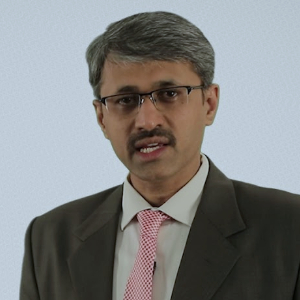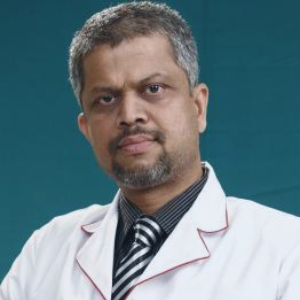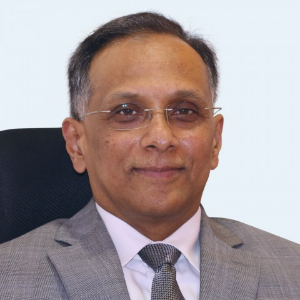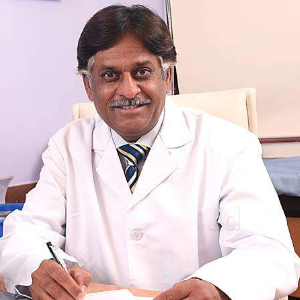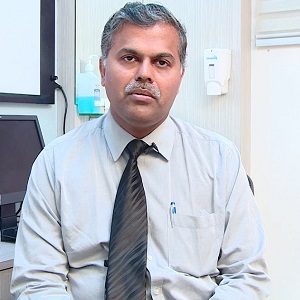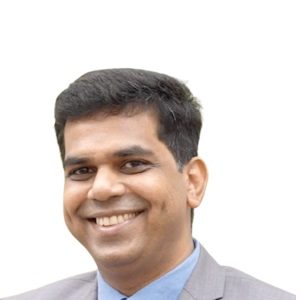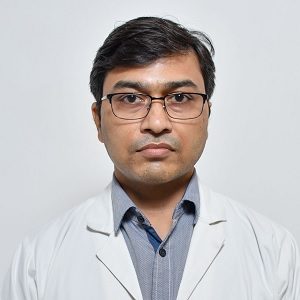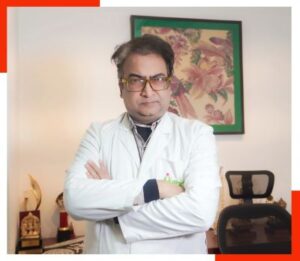Best Doctors in India for Craniotomy
- Neurosurgeon & Spine Surgeon, Bengaluru, India
- Over 15 years’ experience
Profile Highlights:
- Dr. Praveen K S is a highly qualified neurosurgeon with over a decade of experience in handling all kinds of neurological diseases and disorders.
- He specializes in Pediatric Neurosurgery, Neuro-Oncology, Endoscopic neurosurgery, Aneurysms, and Neuro- Trauma and has performed over 4000 neurosurgeries in his career.
- Neurosurgeon & Spine Surgeon, Mumbai, India
- Over 20 years’ experience
Profile Highlights:
- Dr. Rahul Modgi is a highly established neuro and spine surgeon in Mumbai specializing in all types of brain and spine surgeries.
- Dr. Rahul Modgi’s name has been recorded in the Limca Book of Records in 2014 when he removed the heaviest iron rod from the brain of a 17-year-old patient. He has also performed various other risky surgeries for which he has greatly appreciated.
- Neurosurgeon, Bengaluru, India
- Over 30 years’ experience
Profile Highlights:
- Dr. Rajakumar V Deshpande is a renowned Neurosurgeon in Bengaluru. He performed the first pedicle screw fixation surgery for a spine injury in Bangalore.
- Dr. D V Rajakumar specializes in endoscopic neurosurgeries and has performed some of the most complex brain and spine surgeries through the endoscopic approach. His other areas of interest include minimally invasive neuro surgeries, management of cerebrovascular diseases, and brain tumor surgeries.
- Neurosurgeon, Mumbai, India
- Over 20 years’ experience
Profile Highlights:
- Dr. Suresh Sankhla is an accomplished Neurosurgeon in Mumbai specializing in endoscopic neurosurgery and onco-neurosurgery.
- Dr. Sankhla acquired his training in neurosurgery under the guidance of the best trainers from well-known medical institutes and hospitals in Ireland, UK, USA as well as India.
- He has an equal interest in research and has published more than 100 articles, papers, and abstracts in renowned national and international peer-reviewed journals.
- Neurosurgeon, Chennai, India
- Over 25 years’ experience
Profile Highlights:
- Dr. M. Balamurugan is a well-known neurosurgeon in India with 25 years of experience.
- Dr. Balamurugan assists in managing Carotid Body Tumor Embolization, Brain Arteriovenous Fistula Embolization, Nerve and Muscle Disorders, Spinal and Cerebral Tumor Embolization, etc.
- Dr. Balamurugan is a life member of various prestigious associations and institutions.
- He also authored research studies or papers and articles for several publications.
- Neurosurgeon, Chennai, India
- Over 22 years’ experience
Profile Highlights:
- Dr. Srinivasan Paramasivam is a well-known Neurosurgeon in India having an overall experience of 22 years.
- He is associated with Apollo Hospital, Chennai as a senior consultant – neurosurgeon following his assignments abroad.
- Dr. Paramasivam earned a fellowship in Endovascular Neurosurgery from New York. He has 17 years of specialized experience in Neuro Interventional Surgery, Cerebral Angioplasty, Brain Tumor Surgery, Surgical Clipping, etc.
- Neurosurgeon, Gurugram, India
- Over 25 years’ experience
Profile Highlights:
- Dr. Pawan Goyal is a renowned neurosurgeon in Gurugram with 25 years of experience.
- He gained expertise in endoscopic neurosurgery, minimally invasive spine and neurosurgery, all brain and spine tumors, head and spine injuries.
- Neurologist
- Over 20 years' of experience
Profile Highlights:
- Dr. Praveen Gupta is one of India’s top Neurologists, who is currently serving as the Principal Director & Unit Head of Neurology at Fortis Memorial Research Institute, Gurugram.
- Over the course of his 23-years career, Dr. Gupta has made a lasting impact on the field of neurological treatment.
- Among his many firsts, Dr. Gupta founded the first-ever stroke centre in Gurugram and pioneered the use of single-arm mechanical thrombolysis, which completely changed the way strokes are treated in the area.
- He also pioneered Deep Brain Stimulation (DBS) treatments for Epilepsy and Parkinson’s disease, raising the bar for neurological care.
- Gupta has been the founder of two prestigious neurology departments at prestigious corporate hospitals, Artemis and Paras. He has consistently managed the highest possible number of both inpatient and outpatient cases, with an exceptional daily volume of 50 and 100 patients respectively.
- As a highly sought-after speaker, Dr. Gupta often contributes to the progress of neurological treatments and services by sharing his knowledge at national and international conferences.
Best Hospitals in India for Craniotomy
Paras Hospital, Gurugram
- City: Gurugram, India
Hospital Highlights:
- Paras hospital was established in 2006 and is the 250 bedded flagship hospital of Paras Healthcare.
- The is supported by a team of doctors of international and national repute.
- The hospital is NABH accredited and also the first hospital in the region to have a NABL accredited laboratory.
- The hospital provides specialty medical services in around 55 departments including Neurosciences, Joint Replacement, Mother & Child Care, Minimal Invasive Surgery, Gynecology and Obstetrics, Ophthalmology, Dermatology, Endocrinology, Rheumatology, Cosmetic and Plastic surgery.
- The hospital is equipped with state-of-the-art technologies.
S L Raheja Hospital, Mahim, Mumbai
- City: Mumbai, India
Hospital Highlights:
- SL Raheja hospital is a 140-bed multi-specialty tertiary care hospital that is being managed by Fortis Healthcare Ltd.
- The hospital is a benchmark in healthcare and medical facilities in the neighborhood of Mahim & the western suburbs.
- L.Raheja Hospital, Mahim has one of the most effective ICU and Casualty care services.
- The hospital provides specialty medical services in Cardiology, Oncology, Neurology, Orthopedics, Mother & Child Care, and in Diabetes.
Wockhardt Hospitals, Mumbai
- City: Mumbai, India
Hospital Highlights:
- Wockhardt Hospitals were established in the year 1973, originally called First Hospitals and Heart Institute.
- Wockhardt Hospitals are super specialty health care networks in India, nurtured by Wockhardt Ltd, India’s 5th largest Pharmaceutical and Healthcare company.
- Wockhardt Hospitals is associated with Partners Harvard Medical International, an international arm of Harvard Medical School, USA.
- Wockhardt Heart Hospital performed India’s first endoscopic heart surgery.
- The hospital has a state-of-the-art infrastructure equipped with the latest technologies and modern equipment.
- It has special Centers of Excellence dedicated to the major specialties to provide hassle-free and high-quality clinical care.
Pushpawati Singhania Hospital & Research Institute, New Delhi
- City: New Delhi, India
Hospital Highlights:
- Established in 1996, Pushpawati Singhania Research Institute is one of the top hospitals in the NCR region, as well as one of the top facilities in India for gastroenterology. The hospital is one of South Asia’s first institutes in medical and surgical treatment for diseases related to digestion.
- The hospital is equipped with state-of-the art facilities coupled with the latest equipment as well as renowned consultants from various parts of India as well as other parts of the world.
Indian Spinal Injuries Center, New Delhi, India
- City: New Delhi, India
Hospital Highlights:
- The Indian Spinal Injuries Center (ISIC), provides state-of-the-art facilities for the management of all types of spinal ailments.
- Staffed with internationally trained, acclaimed, and dedicated spine surgeons, the hospital provides cutting-edge medical & surgical technology. The hospital provides comprehensive management of spinal injury, back pain, spinal deformities, tumors, osteoporosis, etc.
- The hospital performs motion-preserving spine surgeries including disc replacement and dynamic fixation, and minimally invasive spine surgeries such as endoscopic disc excision.
- The orthopedic service of the hospital covers all orthopedic ailments including trauma, joint diseases & replacements, oncology, pediatric orthopedics & upper limb ailment.
W Pratiksha Hospital, Gurgaon
- City: Gurugram, India
Hospital Highlights:
- W Pratiksha Hospital, Gurugram, is one of the best hospitals in the NCR region. It is also a top hospital in India for IVF. Since its inception, the hospital has performed over 5500 successful IVFs. The hospital also specializes in gynecology.
- With over 20 years of experience in providing quality healthcare, the hospital is known as one of the most trusted and valued health providers in India.
- Equipped with world-class medical facilities and advanced technology, the hospital’s doctors and clinicians also have a track record of delivering excellent results. The hospital is also known for focusing on preventive well-being as much as on curative treatment.
- The hospital has earned the trust of its patients, by providing the best available treatments at affordable costs.
Narayana Superspeciality Hospital, Gurugram
- City: Gurugram, India
Hospital Highlights:
- Situated near DLF Cyber City, Gurugram, Narayana Superspecialty Hospital is one of the top medical facilities in the Delhi NCR region, catering to the needs of the people. Known for its commitment to quality medical care and patient service, the hospital is a state-of-the-art facility with planned and well-equipped sections, which includes a spacious OPD area as well as comfortable patient rooms.
- It is the closest super-specialty hospital from Indira Gandhi International Airport towards Gurugram, and also the nearest super specialty hospital from DLF Cyber City. It is also close to major residential areas in Gurugram.
- It is part of the renowned Narayana Health Group. Established in 2000, by Dr. Devi Shetty, a renowned cardiac surgeon, it has grown to be one fo India’s leading healthcare groups.
Sir Ganga Ram Hospital, New Delhi
- City: New Delhi, India
Hospital Highlights:
- Sir Ganga Ram Hospital, New Delhi is known to provide the latest medical procedures with the latest technology in all of its units.
- The hospital has a team of reputed doctors, nurses, and healthcare professionals that ensure that patients receive quality care at affordable costs.
- Staffed with a team of highly qualified doctors, dedicated nurses, and paramedical and non-medical staff, the hospital aims to lead in healthcare delivery, medical education, training, and research.
- As per the vision of the founder, the hospital also provides free treatment to the economically weaker sections of society.
- Sir Ganga Ram Hospital also provides training to young doctors under the Diplomate in National Board(DNB) program. The DNB program at the hospital was started in 1984 and it is known for currently running the maximum number of DNB specialties in the country. It also has the distinction of having the first bone bank in India.
KIMS Hospital, Hyderabad
- City: Hyderabad, India
Hospital Highlights:
- KIMS Hospital (a brand name of Krishna Institute of Medical Sciences) is one of the largest and best multi-speciality hospitals in Hyderabad. The hospital provides various treatments to an enormous number of patients.
- The hospital has a capacity of more than 3000 beds. KIMS Hospitals offers different healthcare services in more than 25 specialities and super specialities.
- The hospital is equipped with modern medical equipment and technology. It has robotic equipment to provide minimal invasive techniques for patients.
- The hospital is aimed at providing world-class healthcare facilities and services at an affordable cost for patients.
- The various specialities and departments of the hospital include neurosciences, gastroenterology & hepatology, robotic science, reproductive sciences, dental science, oncological sciences, organ transplantation, heart and lung transplantation and mother and child care.
Fortis Hospital, Shalimar Bagh
- City: New Delhi, India
Hospital Highlights:
- Fortis Hospital in Shalimar Bagh is a multi-super specialty hospital that strives to provide world-class patient care by leaving no stone unturned.
- Fortis, Shalimar Bagh, with 262 beds and a 7.34-acre footprint, provides the best level of medical care through its team of doctors, nurses, technicians, and management professionals.
Craniotomy
Types of craniotomy
Craniotomies are of various types depending on the name of the technique or the location of the surgery:
- Stereotactic craniotomy– This type of craniotomy involves the use of an MRI or a CT scan. Your doctor will use imaging tests for creating 3-D images of your brain that will allow them to differentiate between healthy tissue and normal tissue. The technique helps to figure out the best spot for an incision on the scalp and easily make smaller cuts for performing minimally invasive procedures.
- Endoscopic craniotomy- Your doctor will make a small cut into your skull and insert an endoscope (small lighted device) with a camera.
- Keyhole craniotomy- Meant for removing brain tumors, it is a minimally invasive procedure. It has a shorter recovery time and causes less scarring. Your doctor will make a small incision behind the ear for removing the brain tumor.
- Awake craniotomy- You will stay awake during this surgery as your doctor asks you some questions for monitoring the activity of your brain. He or she will observe which parts of your brain are involved in vision, speech, and movement to about them at the time of the surgery.
- Supra-orbital eyebrow craniotomy- This procedure helps to remove brain tumors present in your front brain by allowing your surgeon to make a small incision in your eyebrows. It causes minimal scars as it is a minimally invasive approach.
- Frontotemporal or Pteronial craniotomy- The frontal, temporal, parietal, and the sphenoid bones meet at the pterion in the skull. The pterion is located near your temple on the side of the skull. The procedure involves the removal of a part of the pterion by making an incision behind the hairline. This lets the surgeon gain access to several parts of the brain.
- Orbitozygomatic Craniotomy- It finds its use in treating aneurysms and difficult tumors. Your surgeon will make a small cut behind your hairline and remove a part of the bone temporarily. This creates a curve of your orbit, cheek, or eye socket. Your surgeon will be able to reach deeper areas of your brain and there will be minimal risk of brain damage.
- Posterior fossa craniotomy- If a tumor is present in the posterior fossa of the skull, it may put pressure on the spinal cord, cerebellum, and brainstem. The procedure helps to remove this tumor while alleviating the pressure. Your surgeon will do this by making an incision at your skull base.
- Translabyrinthine craniotomy- It involves an incision behind your ear for removing a part of your mastoid bone & the semicircular canals that help to balance. Your doctor can also remove an acoustic neuroma with this procedure. There is a lower risk of facial nerve damage with this surgery.
- Bifrontal craniotomy- It helps to remove hard tumors present at the front of your brain and when the tumor removal is complex through minimally invasive surgery. Your doctor will make an incision behind the front hairline for removing a piece of bone forming the curve of the forehead. This helps your doctor to gain access to the front of your brain.
Reasons for the procedure
Your doctor will perform the procedure for treating:
- Infection
- Blood clot
- Tear in the dura mater
- Intracranial pressure
- Tumor
- Cerebral edema or swelling
- Brain abscess
- Arteriovenous malformation
- Epilepsy
- Aneurysm
- Bleeding from the skull
- Skull fracture
- Arteriovenous fistula
What to expect?
Before the procedure
Your neurosurgeon may call you for multiple appointments before the surgery and use various tests for confirming if you can undergo the procedure without any risks. These tests may be a physical examination, blood tests, neurological examination, and CT scan or MRI scan. Your surgeon will also be able to determine the site of surgery according to the type of Craniotomy and your medical condition. You will have to start fasting a night before your surgery and wash your hair with an antiseptic shampoo.
During the procedure
The team of doctors will ask you to remove all the jewelry and accessories that you might be wearing and change your clothing with a hospital gown. You will be asked to lie down on the operating table as a device holds your head in place. The staff will insert an IV line into your arms, a urinary catheter into your urinary bladder, and administer general anesthesia to you. When you fall asleep due to anesthesia, your surgeon will shave your hair present at the surgical site and also clean the area for minimal risk of infection.
Your surgeon will cut your scalp while using a drill & saw to remove the bone flap. He or she will incise the dura mater to gain access into your brain and perform the procedure while removing tissue samples, wherever needed. The team of surgeons will stitch the tissues together and replace the bone flap with wires, plates, or stitches. Next, they will apply a sterile bandage after stitching.
Results
The nurses will take you to the recovery unit and monitor your vitals. If they are stable, they will shift you to your hospital room and ask you to stay there for a week. You might need to elevate your head for managing the swelling and will get oxygen for a few days. You will have to perform deep breathing exercises for treating pneumonia and need commission devices on your legs for preventing blood clots. You will wear the catheter for a few days and the team of doctors will check you regularly for the proper functioning of your brain. You may need to take medications and take rest for at least 6 weeks. Additionally, you might need physiotherapy and speech therapy for regaining the normal functions of walking, talking, and strength.
Risks
Certain factors are contributing to the risks associated with the Craniotomy procedure including your medical condition. The most common risks of Craniotomy procedure may be:
- Head scarring
- Facial nerve damage
- Seizures
- Muscle weakness
- Dent where the bone flap was removed
- Damage to the sinuses
- Brain swelling
- Stroke
- Injury due to the head device
- Infection of the skin or bone flap
- The leaking of the CSF or the cerebrospinal fluid
- Speech and memory problems
- Coma or paralysis
- Balance issues
- Bleeding or blood clots
- Unstable blood pressure
- Pneumonia
- Reaction to anesthesia

